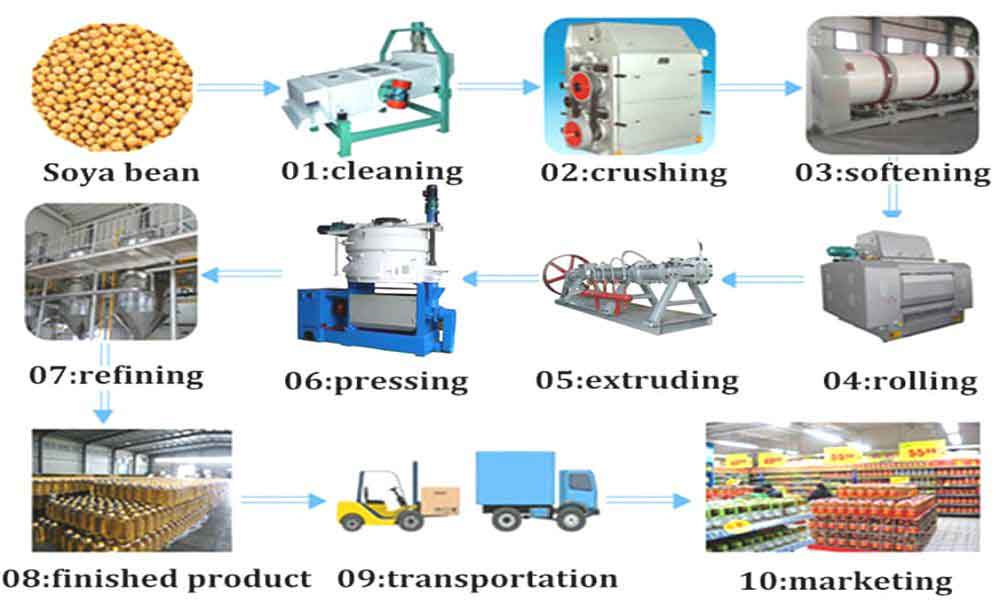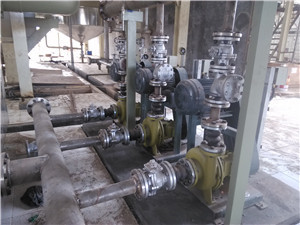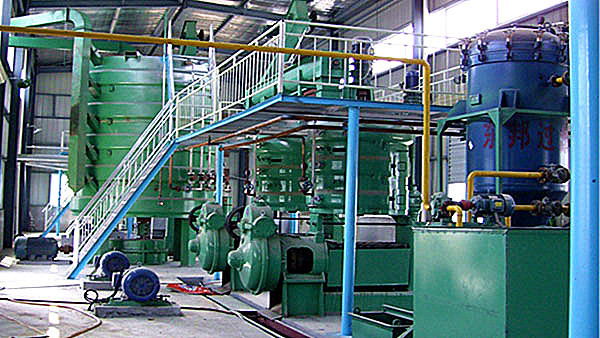
In today’s shifting industrial landscape, small-scale soybean oil factories play an essential role in coastal and rural economies. As environmental policies tighten and sustainable development takes center stage, optimizing the production workflow in these plants has become a crucial driver for increased profitability and ecological stewardship. This guide delves into how such facilities can refine their manufacturing processes, achieving superior oil quality while maximizing operational efficiency.
A typical small soybean oil processing facility is composed of interconnected equipment segments, each contributing uniquely to oil extraction. Key machinery includes:
Each processing stage is governed by both physical and chemical principles, requiring precise control to maximize outcomes:
| Process Stage | Key Parameters | Optimization Measures |
|---|---|---|
| Cleaning | Impurity removal rate ≥ 98% | Install advanced vibrating sieves and magnetic separators |
| Crushing & Dehulling | Recovery rate > 95% | Calibrate hammer mills; implement cascading roller crushers |
| Cooking | Controlled temp 80-90°C; residence time 30-40 min | Automated temp & moisture control systems |
| Pressing | Oil yield 18-20%; temp ≤ 75°C | Upgrade to continuous screw presses with heat regulation |
| Filtration | Oil clarity > 99%; dryness 0.05% moisture | Employ vacuum filters or centrifuges for rapid separation |
| Refining (optional) | Acid value < 0.3 mg KOH/g; peroxide value < 1.0 meq/kg | Implement continuous physical or chemical refining techniques |
By systematically adjusting parameters such as temperature, pressure, and retention time, small plants can significantly improve oil extraction efficiency while reducing energy consumption and waste generation.
Practical implementations for operational improvements have demonstrated measurable benefits. For instance, upgrading cleaning lines with multi-stage separators boosted impurity removal rates from 92% to 99%, reducing equipment downtime caused by contaminants. Similarly, precision-controlled cookers minimized overprocessing, consistently maintaining moisture content around 6% — the ideal for pressing.
Case studies from regional processors reveal that adopting continuous screw pressing equipped with temperature sensors increased oil yield by up to 12%, while maintaining free fatty acid levels below 1%, ensuring superior oil stability and taste. Additionally, employing vacuum filtration shortened filtration cycles by 30%, cutting processing bottlenecks and improving throughput.

Aligning production with environmental standards is no longer optional. Small-scale soybean oil plants are increasingly integrating sustainable practices that curtail their environmental impacts:
These eco-conscious interventions not only diminish the factory’s carbon footprint but also resonate with end consumers valuing sustainability, ultimately facilitating market access and brand differentiation.
Beyond technological innovation lies the profound impact of small soybean oil factories on local economies and social development. By generating employment opportunities—often exceeding 50 jobs per facility—these plants stimulate rural incomes and reduce urban migration pressures.
Furthermore, reliance on locally sourced soybean crops spurs agricultural productivity, enhancing overall value chains. The reinvestment of profits into community infrastructure and training programs contributes to sustainable development goals by uplifting quality of life and fostering inclusive growth.

Looking ahead, emerging technologies such as IoT-enabled equipment monitoring, AI-driven process control, and alternative mechanical extraction methods promise to revolutionize small-scale soybean oil production. Adopting smart sensors could enable real-time quality analytics, enabling dynamic process corrections that preserve oil integrity.
Enterprises are advised to incorporate modular machinery designs for scalability, invest in employee skills development around modern controls, and pursue sustainability certifications (e.g., RSPO, ISO 14001) to unlock premium markets. Cultivating partnerships with local farmers and research institutions can further accelerate innovation diffusion.

Discover How Our Advanced Soybean Oil Processing Solutions Can Transform Your Production Today!
Embrace cutting-edge equipment tailored for small to medium-scale processors that guarantee improved oil yield, enhanced quality, and sustainable operations. Partner with us to unlock new market opportunities aligned with global environmental standards.
Get Started with Sustainable Soybean Oil Processing Solutions


